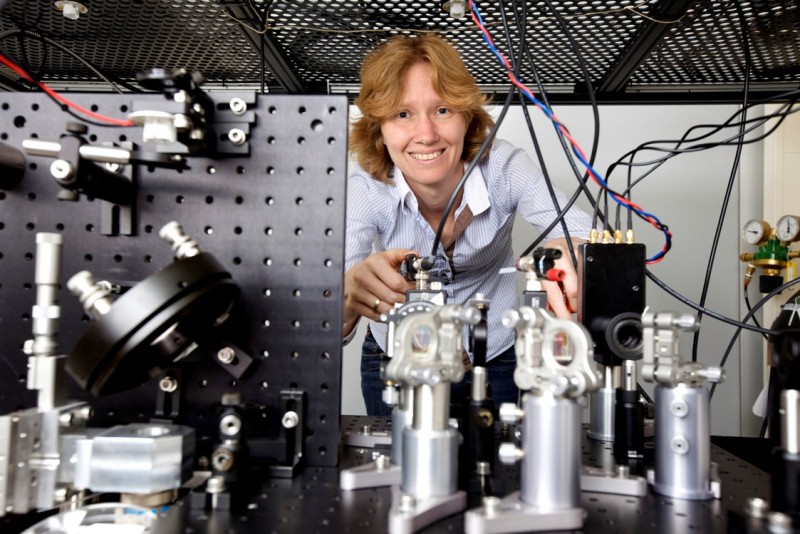Professor of Biological Physics, Nynke Dekker, and Professor of Ethics and Technology, Ibo van de Poel, both received an ERC Advanced Grant of 2.5 million euros from the European Research Council this month.
Dekker will map the replication of chromatin in yeast and Van de Poel will develop a philosophical theory of value change.
DNA replication is essential to cellular function. During a lifetime, each one of us synthesises no less than a light-year’s length of DNA. This mechanism is extremely robust and relatively few mistakes are made during copying.
But DNA replication is only half the story. In eukaryotic organisms, which include ourselves, DNA is packed into chromatin – an assembly of DNA and proteins found in the cell nucleus that resembles a string of beads when seen under a microscope. For a cell to duplicate, the chromatin also needs to be duplicated.
“The DNA strand wraps itself around the individual protein beads, called nucleosomes, creating compact packets of genetic material that also serve to regulate gene expression”, says Dekker. “They influence which genes become active, and how, and are thus responsible for regulating a cell developing into a nerve cell or a muscle cell, for example. In this way, chromatin plays a role in epigenetics, the changes in gene function that result from factors other than only DNA sequence.”
‘We will clamp and stretch DNA’
“Far less is known about how chromatin is replicated, relative to DNA alone,” says Dekker. “Many proteins are involved in managing this process. Each has its own task and role to play at certain points during replication.”
Understanding the interaction between DNA and chromatin replication is important because it can provide insight into phenomena such as epigenetic inheritance and the development of cancer, which is associated with replicative stress.
Dekker will map the replication of chromatin in yeast using so-called single-molecule techniques. “Basically, we will clamp and stretch DNA to enhance visualisation, and add proteins to the DNA that we suspect play a role in chromatin replication. By adding fluorescent labels to these proteins, we can see where they bind in the DNA, and deduce their function. Kick-starting the whole process will be a challenge, as we know from working out the best methods to achieve this on DNA alone. Ultimately, we hope to create a mechanistic timeline of the steps in which chromatin is replicated, a movie if you like.”
Research design for changing values
What can we do to make systems such as gas infrastructure, blockchains or energy grids more flexible? Over the coming five years, Ibo van de Poel and his research team will look into this question. He received the ERC grant to develop a philosophical theory of value change.
According to a TU Delft press release, the project “builds on existing work on Value Sensitive Design in which moral values such as safety, sustainability, privacy, justice, and democracy are incorporated into technological design.”
That is quite a mouthful. “We are looking for ways of designing infrastructure so that it can adapt when our moral values change. Theories and approaches assume that values are static while in reality, values often change after a technology has been designed. The consequence of this blind spot is a mismatch between the values that were embodied in the sociotechnical systems surrounding us in the past, and the values we find important today.”
‘We cannot change systems overnight’
One example is that many of our current energy and transportation systems do not yet sufficiently meet the value of sustainability. Although this is now generally recognised, it is also clear that we cannot change these systems overnight as they have major technological and institutional momentum, as do the values embedded in them.
A good example of Value Sensitive Design, according to Van de Poel, can nowadays be seen in housing. It is now very popular to build in a modular fashion so that one can later change the configuration of a house. “Or take modular mobile telephones (the Fairphone). They allow you to change parts when it is no longer functioning instead of throwing away the entire phone. Years ago people would not have valued this that much. But now the depletion of resources has made it a concern.
“We also want to do research on artificial intelligence. Many self-learning algorithms have a sort of moral value embedded in them which they can adapt over time. How do they do this? This may not always be well understood. It is an exciting field of research.”
Van de Poel will use the grant to hire two post docs and three PhD students.
Do you have a question or comment about this article?
tomas.vandijk@tudelft.nl


Comments are closed.